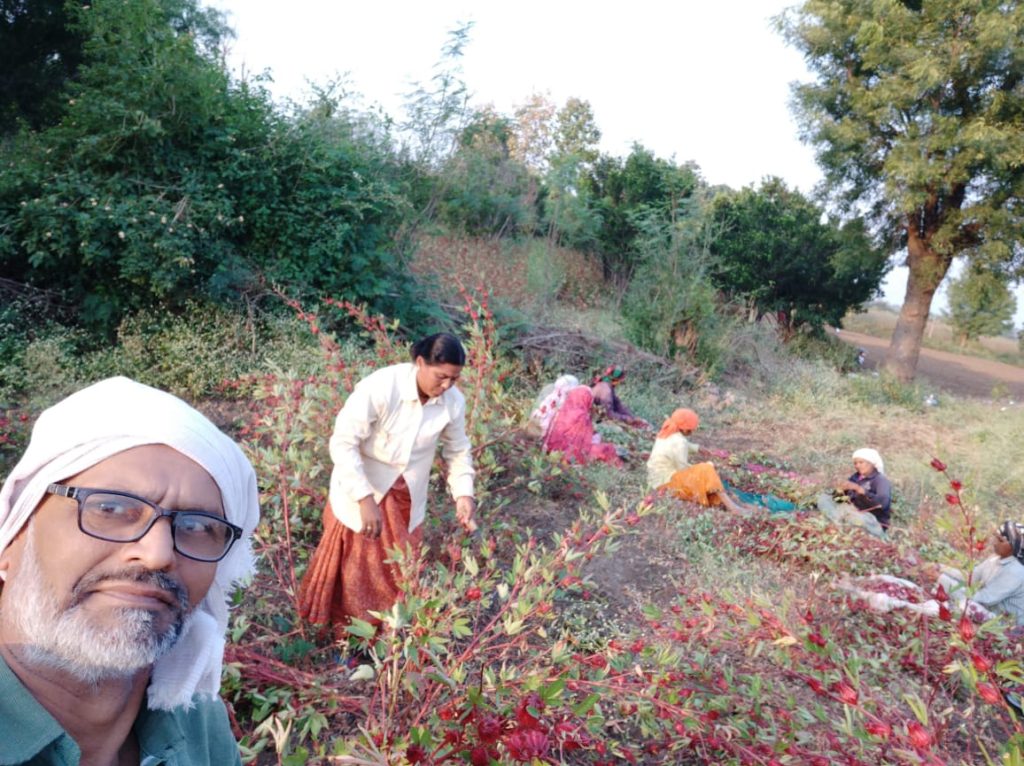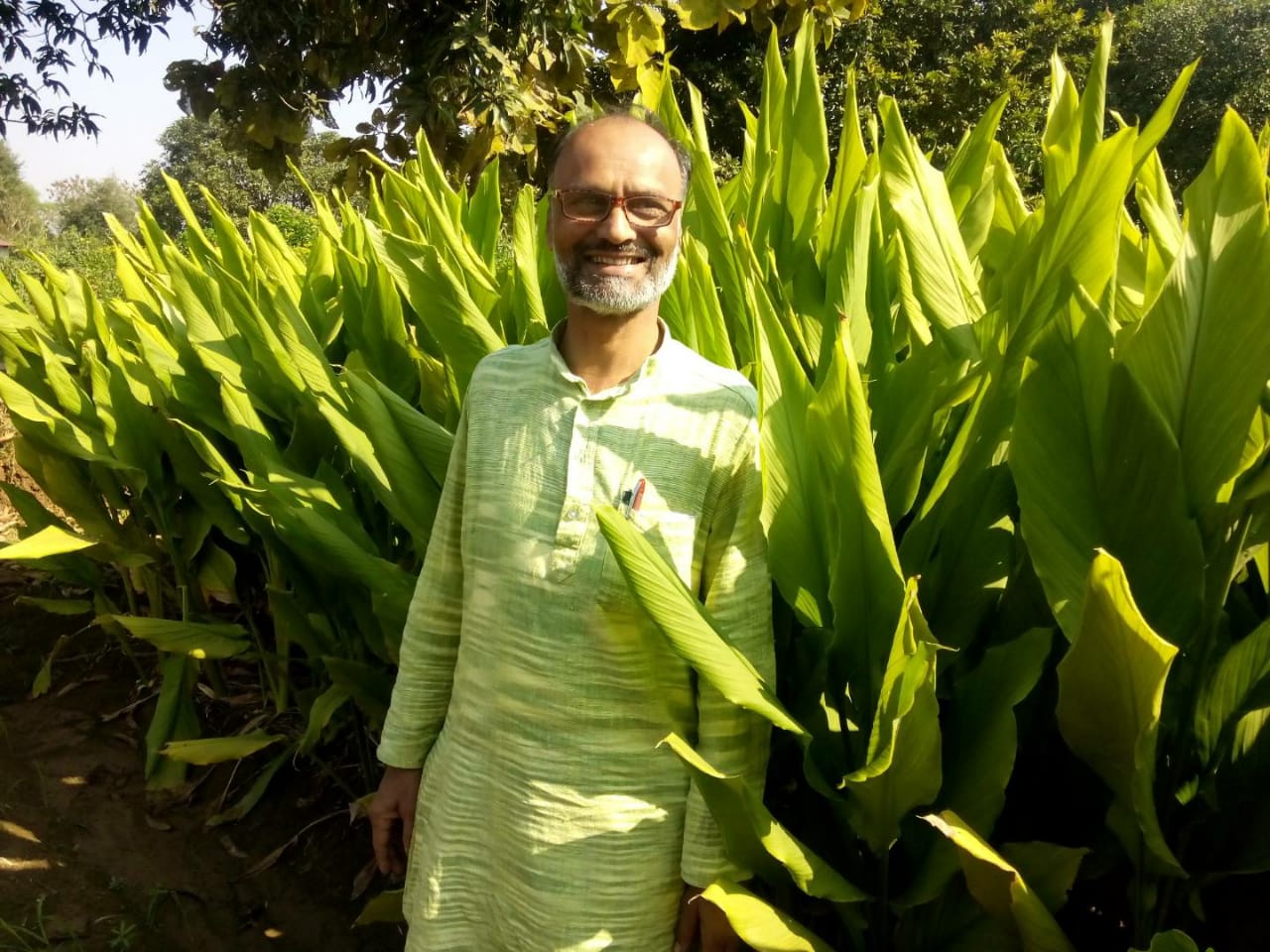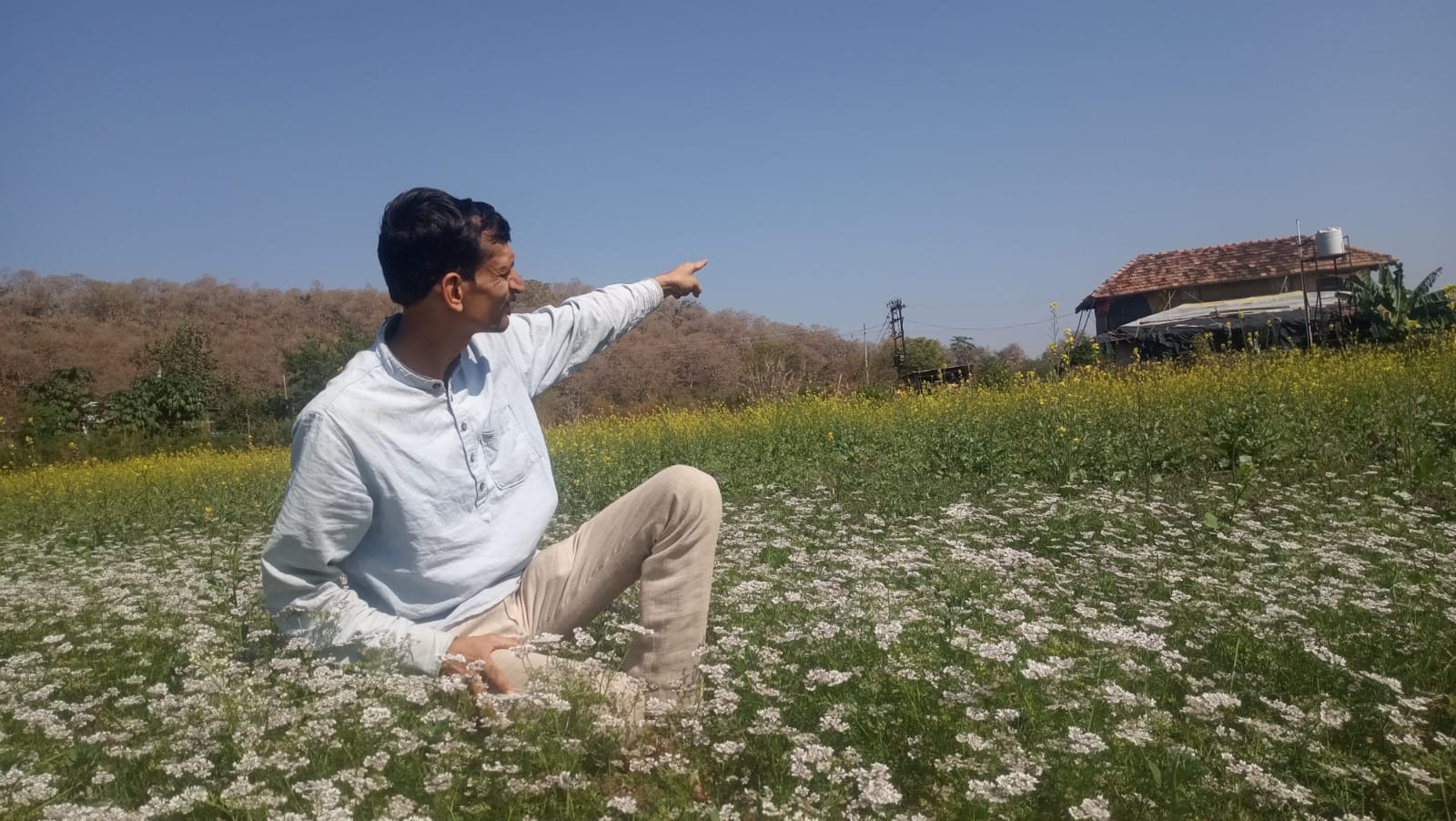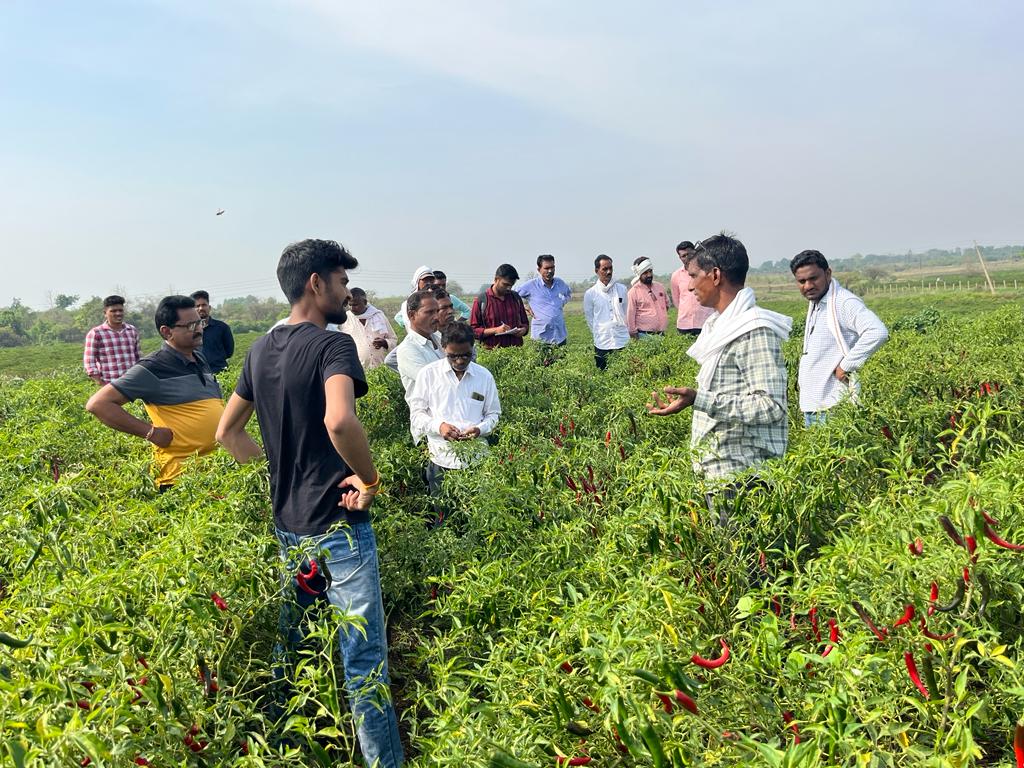The unchecked exploitation of natural resources, rising pollution, and excessive use of toxic chemicals in farming have posed serious threats to human health. Realizing this bitter truth, Anant Bhoyar, a farmer from Katol taluka in Nagpur district, chose to embrace organic and sustainable agriculture nearly two decades ago.
Since 2004, Bhoyar has transformed his 14-acre farm into a model of sustainable farming. Instead of monocropping, he adopted multi-cropping practices, reviving traditional crops such as ambadi, sesame, bajra, nachni, barnyard millets, linseed, coriander, fenugreek, and other forgotten varieties. Using innovative methods like Jeevamrut (a natural liquid manure he adapted and improved), he enriched soil fertility without relying on chemical inputs.
Bhoyar strongly believes that while farmers remain poor despite their hard work, middlemen and traders get rich without effort. To break this cycle, he started processing and marketing his farm produce directly to consumers. Today, under the brand “Gavkus Naturals“, he and his family produce and sell nearly 40 varieties of natural, home-processed products through online platforms, ranging from traditional pickles, chutneys, candies, and herbal teas to juices and natural health products.

Beyond farming, he has been instrumental in seed conservation. Through his indigenous seed bank Apulki, Bhoyar has been collecting, conserving, and sharing traditional seed varieties. He is also a part of Beejotsav movement for the past 12 years, which promotes indigenous seeds across India.
His pioneering efforts have earned him wide recognition. He was honored with the Krishi Bhushan Award by the Government of Maharashtra in 2009-10, and the Dharti Mitra Award in 2018 for his contribution to natural farming and seed sovereignty. In 2017, he also guided farmers from across the globe on “Value Addition in Sustainable Farming” at the 19th IFOAM International Organic Congress in Noida.
Anant Bhoyar’s journey is not just about farming—it is about redefining self-reliance, empowering farmers, and ensuring safe food for consumers. From a small village in Nagpur to international platforms, his work stands as an inspiring example of how sustainable agriculture can address agrarian distress while creating healthier communities and resilient ecosystems



